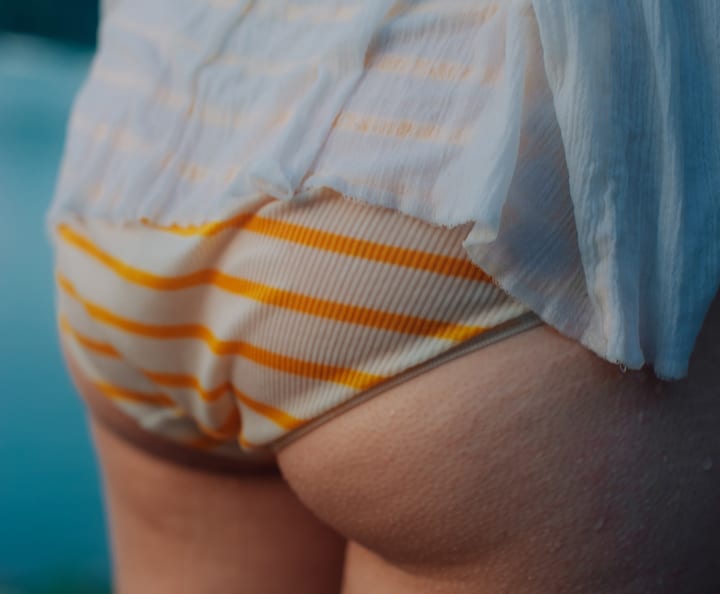How the peach emoji became an anti-Trump symbol
How did the peach emoji become the symbol of political karma in American history? Like all things politics, it started with a scandal. On 28 December 2019, Nancy Pelosi, the House speaker for the House of Representatives, announced that President Donald Trump was charged with abuse of power for political gain, among a slew of other charges, leading to his impeachment.
Along with going down in history as the third president to be impeached in Congress, Trump’s impeachment will most importantly be the first one to be documented through memes. Although the flurry of gross misconduct is enough to write a novel, this isn’t about the dramatic twists and turns of political corruption. This is focusing on the power of the meme in the midst of political turmoil and its new peculiar role in shaping American history.
TikTok, Instagram and Twitter have been flooded with distinct brands of humour commenting on the presidential impeachment, with the peach emoji as the symbol of political justice. Originally a go-to sexting staple, the peach emoji has now infiltrated tweets, memes and captions with its new meaning, and has even surfaced as a photoshopped face of Trump as a peach. With the impeachment seen as its own holiday within a holiday, hashtags such as #impeachmas trended with many Americans and internationals watching with bated breath for the next turn in this long-awaited saga.
The use of memes to celebrate and voice opinions of a political nature is a new phenomenon amongst millennials and gen Z users. But what does this mean? Screen Shot asked American Gen Zers (born between 1997 and 2012) and millennials (born between 1981 and 1996) what they thought of the flurry of impeachment memes. A 19-year-old first-year university student confessed that she’s not that into politics, but considered herself to be political. “It’s complicated and messy. I try not to get too involved,” said the 19-year-old who is a TikTok enthusiast.
One American student studying in London commented on how these memes were skewing internationals’ opinions of the American government. “I thought they were funny but misleading because people who aren’t American didn’t understand that being impeached isn’t the same as being removed,” she said. “Also, most marginalised groups won’t face danger if they travel to America. The president and his views aren’t a snapshot of how the country is.”
A 24-year-old fashion designer from Chicago thought the memes were quite funny and represented how quickly young people could express themselves online, but also how some boundaries can easily be crossed. “They’re funny, but can sometimes go too far,” said the designer. “I’m political, but I’m trying to go on a social media detox right now.”
According to Global Web Index, millennials and gen Z users spend on average 60,772 hours a year on social media, meaning they’re bombarded with devastating news regarding corrupt governments, climate crisis, violence and assault—we all know how heavy it can get. It’s no wonder, then, that some young people are opting to stay off social media altogether for the sake of their own mental health. Sometimes considered as a coping mechanism to the turmoil happening right now, it makes sense that memes are the go-to for younger generations to express their reactions to specific events.
Meme culture has always resided between comedy and tragedy, acting as a gateway to the minds of the people, filled with nuanced humour and exploring minute, complicated, sometimes heavy, emotions that can’t quite be expressed through words alone. Some say it’s not right to poke fun at the US’ misfortunes through memes, and that people are losing their ability to distinguish between seeing comedy in tragedy and just being insensitive. But what else can we do? Everything in the world is politically charged and it’s harder not to comment on the hardships we’re exposed to every day.
Maybe we can’t distinguish between what’s appropriate and what isn’t anymore, or maybe memes are the only way we can cope and extend the delusion a little longer that justice is prevailing. We know the issues behind the memes aren’t funny. We know these are all veiled attempts at grieving. Grieving a world rapidly changing for the better? For worse? Who knows.
We are holding onto optimism as for dear life, and memes aid in boosting morale. On the plus side, I can’t imagine what historians in the future will make of these memes. Classroom screens glowing with PowerPoint presentations of a photoshopped face of Trump on a peach explaining the era of one of the most corrupt presidents in US history. These memes, tweets and TikTok videos will be significant artefacts and considered important tools to learn about American history and the start of this new decade. Is that wild or what?





